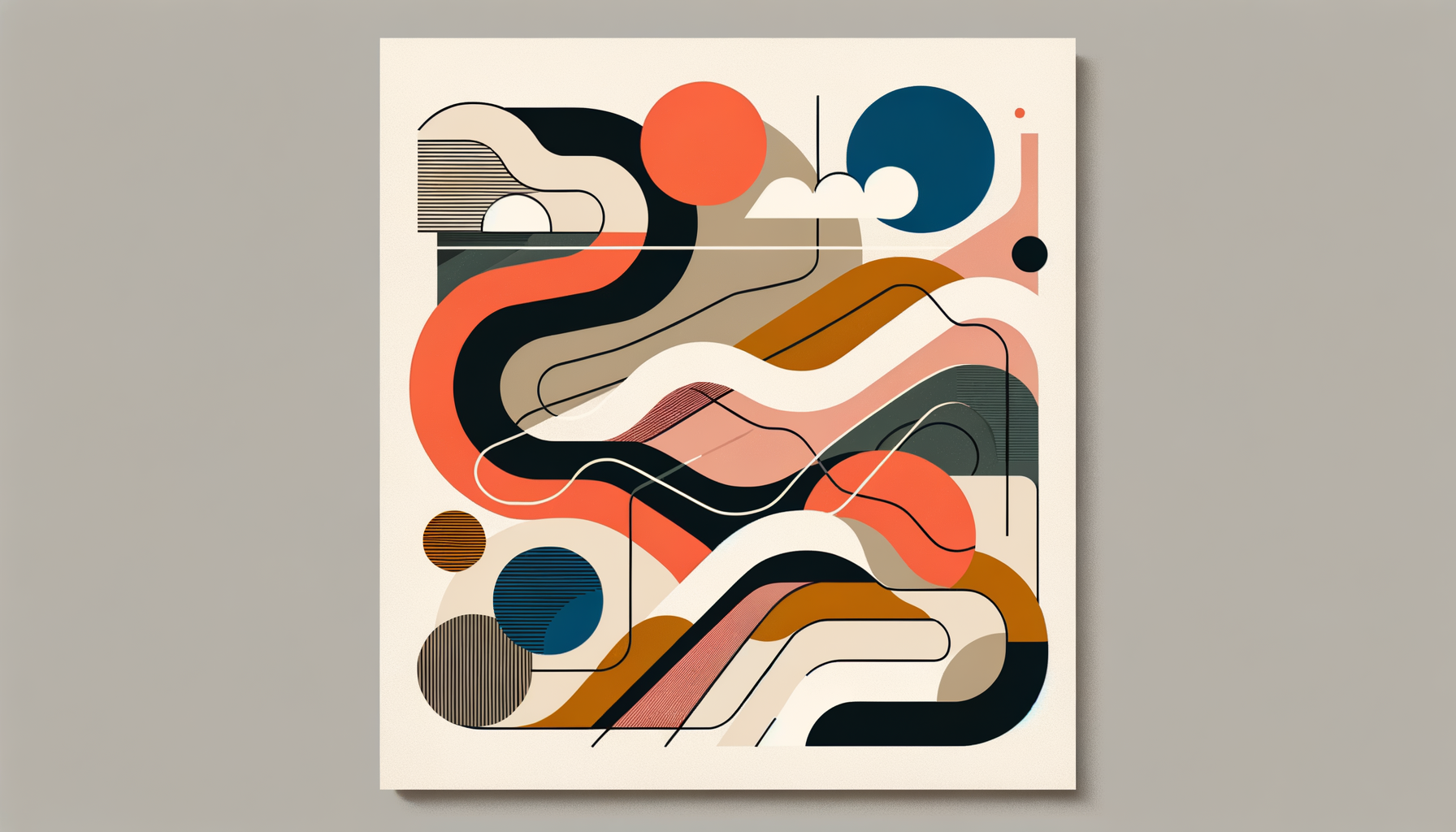The Art of Letting Go: Transforming Self-Doubt into Confidence
“What If They Find Out I Have No Idea What I’m Doing?”
The first time I was asked to hold a microphone and deliver a lecture on 19th-century Impressionism, I almost fainted into a Degas. My vision of sweeping through lecture halls à la Mary Poppins—poised, articulate, with an accent that made people believe I’d been sipping tea alongside Virginia Woolf—was immediately undercut by the reality of my shaking knees and existential dread.
“What if they ask something I can’t answer?” I thought, the words looping like an anxiety anthem throughout my six-hour flight to London, where I was scheduled to speak. By the time I arrived, I’d convinced myself that someone would leap from the crowd and yell, “Fraud! That’s not an obscure Monet! That’s just blurry pastel chaos!”
It turns out, they didn’t. I was the only one questioning my authority, and no one seemed too concerned about the existence of slightly-less-than-obscure Monets. It wasn’t my pedigree or Oxford degree that saved me that day—it was realizing that everyone, experts included, carries their own orchestra of self-doubt. The trick is learning how to silence it just enough so you can hear your own voice.
Much like a new relationship (or third-date jitters), growing into expertise is less about mastering all the answers and more about learning to embrace the unknown with grace.
The “Picasso Period” of Impostor Syndrome
Let’s get real: everyone—yes, even the ones who glide through life as if they were born wearing bespoke suits or museum-curated confidence—has their Picasso Blue Period of self-doubt. It feels murky, tinged with insecurity, and often makes you want to crawl back into bed and binge-watch a historical drama (because at least Downton Abbey’s mistakes aren’t yours).
In my case, I spent years obsessing over every perceived misstep. Anytime I’d fumble a question during consulting gigs or space out during jargon-packed curatorial meetings, I’d mentally spiral into “I should quit this entirely and open a croissant shop in Provençal obscurity where expectations don’t exist” territory. Because croissants don’t care about your résumé.
What changed? I began to realize that no one’s path to expertise is without the occasional botched brushstroke. Confidence isn't born fully formed like Venus stepping out of her clamshell; it’s built one awkward brushstroke at a time. Or as another favorite artist of mine, Frida Kahlo, might put it: Don’t waste time painting someone else’s idea of perfection. Instead, paint courageously—even if the colors bleed outside the lines.
How to Befriend Your Inner Critic
Now, I won’t pretend self-doubt vanishes overnight (if only self-help podcasts were that powerful). But what can happen is this: you start negotiating with self-doubt instead of letting it run the show. Here’s how I’ve made peace with my “I have no clue what I’m doing” moments:
-
Reframe Self-Doubt as a Learning Signpost:
Whenever I feel out of my depth, I ask myself: “Why am I doubting this? Is it because I genuinely need more preparation, or is it the age-old fear of looking ridiculous?” Sometimes, your inner critic is just trying to nudge you toward a growth moment. Other times, it’s overstepping its bounds. Learn to differentiate, and respond accordingly. -
Ditch the Perfectionist Trap:
Failure doesn’t make you less credible; being unwilling to learn from it does. Embrace the philosophy of “good enough for now.” Much like the first draft of a thesis or an awkward first date where you accidentally overshare about your ex’s taxidermy collection (note to self: still questionable flirting material), you’re allowed room to refine as you go. -
Seek Mentors, Not Mirrors:
The best advice in my career (and my love life) came from mentors who weren’t afraid to admit when they felt out of their depth. Hearing a seasoned colleague say, “Here’s how I messed up once—and here’s what I learned” reminded me that expertise isn’t an arrival point; it’s a journey through unexpected detours. -
Celebrate Wins, Big or Small:
Early in my speaking career, I was so hyper-focused on the one area where I stumbled—an audience question I couldn’t fully answer—that I ignored a dozen compliments afterward about how engaging the lecture had been. Sound familiar? Don’t let the one hiccup overshadow a sea of success.
The Parallel Between Relationships and Expertise
Here’s an analogy I’ll share with my fellow people navigating the ocean of impostor syndrome: Overcoming self-doubt is much like the early stages of a romantic relationship. At first, there’s often an overpowering desire to impress—to be witty enough, knowledgeable enough, or to keep your “quirks” neatly hidden.
But the deepest connections—whether it’s with another person or with your own craft—happen when you stop fixating on perfection and let yourself shine as you are. Your quirks (yes, even if it’s being the person who, I don’t know, orders an anchovy pizza during date night) become endearing because they’re real. Similarly, your vulnerability as a burgeoning “expert” makes you relatable and authentic. It’s not your job to have all the answers; it’s your job to stay curious enough to keep searching for them.
Building Confidence Doesn’t Mean Erasing Fear
Fun fact: I still get nervous every time I walk into a lecture hall (or an intimidating party filled with lifestyle bloggers boasting about their Parisian vintage finds). The difference now is, I no longer see my nerves as a failure. They’re a sign that I’m still growing—and that’s a good thing.
So, the next time you’re standing in front of a proverbial crowd—whether it’s in a boardroom, a candlelit dinner date, or navigating your latest passion project—don’t assume you have to arrive as a masterpiece. Remember: even Monet painted over half his waterlilies before anyone called him a genius.
You’re Worth Showing Up (Even When You Don’t Feel Ready)
Here’s the bottom line: stepping into your own expertise, like love, requires showing up even when you’re not sure of the outcome. You build confidence incrementally—the same way relationships deepen, or how an empty canvas begins to transform with every new brushstroke.
The first step to quieting impostor syndrome is simply starting—and maybe repeating this mantra that has saved me more than once: “I might not have all the answers today, but I’m capable of figuring them out.”
Turns out, that’s all you need to go from rookie to renaissance—one imperfect, yet entirely authentic, step at a time.




















